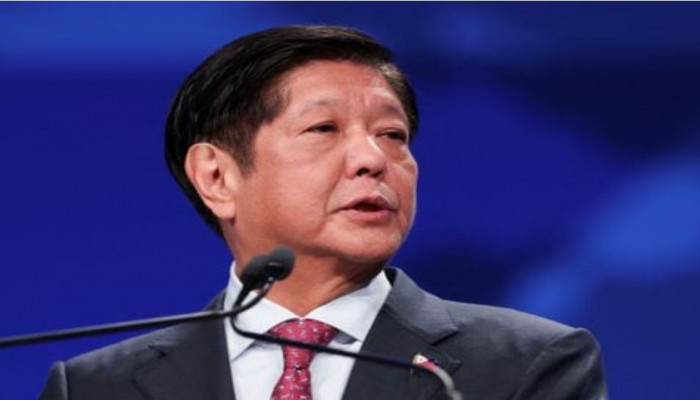Philippines initiates collaborative sea and air patrols with U.S. military
- In Reports
- 03:06 PM, Nov 22, 2023
- Myind Staff
The Philippines and the United States have commenced joint patrols in waters near Taiwan, as confirmed by officials from the Southeast Asian nation. This development is expected to escalate tensions with China.
Throughout this year, security collaborations between the treaty allies have intensified. This includes a decision to nearly double the number of Philippine bases accessible to the American military, some of which are situated facing Taiwan. Additionally, the two nations conducted their largest-ever joint military drill in April.
Philippine President Ferdinand Marcos Jr. declared this week's three-day joint air and maritime exercise as a "significant initiative" aimed at enhancing interoperability between the two nations. Speaking on the social media platform X, he expressed confidence that the exercise would contribute to a more secure and stable environment for the people.
According to Eugene Cabusao, spokesperson for the Northern Luzon command, the drill is set to commence on Mavulis Island, the northernmost point of the Philippines, situated approximately 100 km (62 miles) off Taiwan.
The joint air and maritime exercise is scheduled to conclude in the West Philippine Sea, the term employed by Manila to denote waters in the South China Sea within its exclusive economic zone (EEZ). As per the Philippine military's announcement, three navy vessels, two FA-50 light combat aircraft, and an A-29B Super Tucano light attack plane are set to participate. The United States, in turn, is expected to deploy a littoral combat ship and a P8-A Poseidon maritime patrol and reconnaissance aircraft.
The announcement follows Marcos's recent statement in Hawaii, expressing concerns about the increasingly "dire" situation in the South China Sea, with the Chinese military approaching closer to the Philippine coastline. These patrols, likely to provoke China, indicate the Philippines' heightened defense posture in response to what it perceives as China's "aggressive activities" in the strategically important waters, often considered a potential flashpoint between the United States and China.
China's Washington embassy spokesperson Liu Pengyu said, "China believes that defense and security cooperation between countries needs to be conducive to regional peace and stability. They should not escalate tensions or undermine trust between countries, still less target any third party."
The Chinese embassy in Manila has not responded to a request for comment regarding the recent developments. China asserts its claim over the majority of the South China Sea through a "nine-dash line," extending up to 1,500 km (900 miles) south of its mainland. This claim overlaps with the exclusive economic zones (EEZs) of rival claimants, including Brunei, Indonesia, Malaysia, the Philippines, and Vietnam.
Since assuming office last year, Philippine President Marcos has strengthened ties with Washington, in contrast to the previous administration led by Rodrigo Duterte, who leaned towards Beijing for infrastructure projects and investments.
Under Marcos, relations with China have deteriorated, marked by repeated maritime standoffs between Chinese and Filipino vessels in contested waters. These incidents have sparked verbal exchanges and raised concerns about escalating tensions.
Despite recent talks between Marcos and Chinese President Xi Jinping aimed at easing tensions, the joint patrol with the United States underscores Manila's assertive stance in addressing issues related to the West Philippine Sea, according to Jay Batongbacal, director of the Institute for Maritime Affairs and Law of the Sea in Manila.
Image source: Reuters







Comments